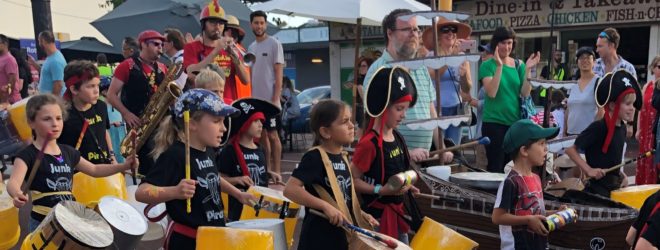Igniting local passion
We’ve talked recently about the critical role of local government when regional towns are in decline, but civic leadership doesn’t need to wait for a crisis. People’s passion for a place is a vital ingredient for a thriving community. Local government can play a role in finding and supporting this passion. In some cases it is the only agency able or willing to. Local government authorities are no longer just in the business of just the “three r’s” of roads, rates and rubbish – they have a significant contribution to make across the “triple bottom line” of economic, social and environmental quality of places.
Project for Public Places (PPS), a not for profit placemaking organisation, defines placemaking as:
both an overarching idea and a hands-on approach for improving a neighborhood, city, or region
Activating investment
Placemaking involves the identification of local assets unique to the place, the skills and passion of the local community, individuals or businesses, physical structures and places and capitalising on these to create distinctive places.
Placemaking is not new and has long been recognised as an economic and community development strategy. In Western Australia, the concept of placemaking has come to the fore in more recent years as its value is increasingly recognised amongst local authorities and communities alike. By adopting a placemaking approach and recognising its role in facilitation and process coordination, local governments can better prioritise and shape its own investments and help to activate investment by other players. A key here is to identify and draw on the existing passion and the entrepreneurs in the community.
The fundamental success factor of placemaking lies in this process facilitation and coordination and this is where local government can make a real difference, including the alignment of its own capital works program. It is all well and good for individuals to be actively doing “stuff” with the hope of benefitting their community however without coordination; this can be a wasted effort with opportunities lost and potential synergies unrecognised. It can also be very difficult for communities to navigate the complex waters of bureaucracy in order to achieve the desired outcomes.
Enabling
PPS has found that the management and process facilitation of place can account for 80-90% of the success of a space. The body of research that defines placemaking strongly identifies the role of facilitation at its core. Local government can play a critical role in enabling this facilitation to occur.
This example from the City of Adelaide was strongly embedded in this notion of facilitation and activating community passion. The City’s approach to placemaking is underpinned by its willingness to “lead, partner, facilitate, enable and co-create with the community” to deliver the shared placemaking outcomes. The City’s highly regarded Splash Adelaide program is evidence of the success of this approach. In its first year the Council contributed around $100,000 and this activated 32 different pop up activities, by the second year the activities had more than doubled to over 75 yet the Council funding remained the same. It is still going strong.
A visit to Western Australia after the Christchurch earthquakes by Dr Ryan Reynolds, co-founder of Gapfiller, revealed the difference Christchurch City Council has made by supporting a number of placemaking initiatives, often in the background. With the not-for-profit initiative in the foreground, spontaneous community contributions to public space have flowed. We see local examples of community initiatives, sometimes with background support from local government, such as the recent emergence of verge gardens.
Local governments need to recognise that there are proactive, creative and willing innovators within each community and with a little support, guidance and assistance, these community members will invest in their local and much loved places. These people are the community’s biggest assets and can have a significant impact on the viability and sustainability of a place.
The power of the people is much stronger than the people in power
Wael Chonim
#WeAreLocalise

